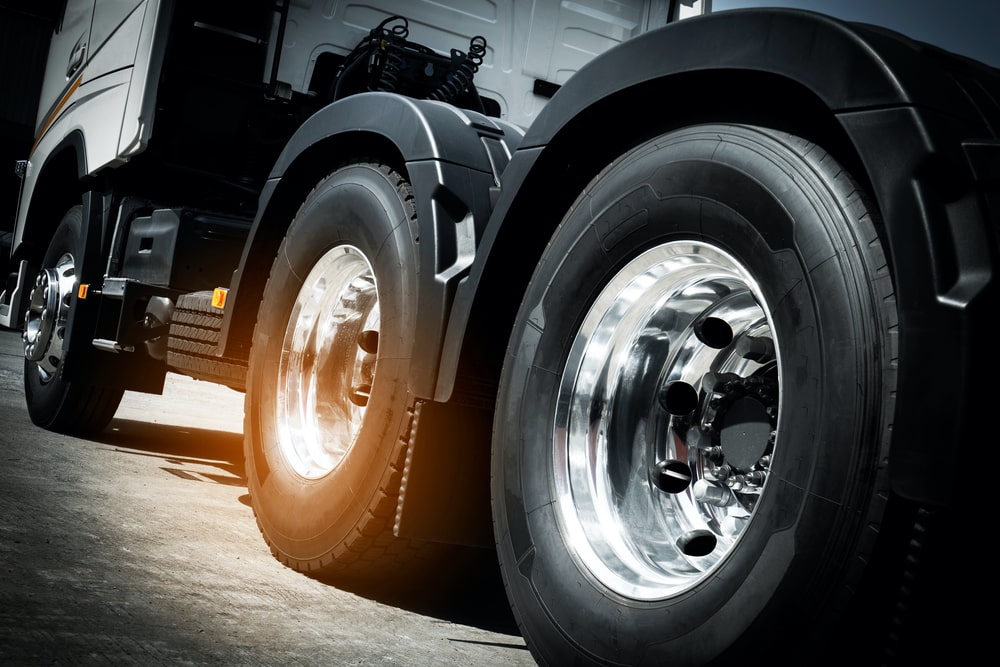During the summer, hot weather can make truck driving more challenging. Keeping the A/C running and having cold water on hand can make things more comfortable in the cab, but the heat can still take a toll on your equipment. The tires, engine, and belts can all suffer from overheating. Commercial tires in particular can overheat easily, as they are in constant contact with the hot road and heating up from continuous friction. To keep things running properly and prevent a blow out, there are a few extra precautions you can take.
Checking Truck Tire Pressure
Checking your tire pressure is especially important during extreme weather. Use a tire gauge to make sure your tires are properly inflated. Commercial tires that are over or under-inflated are more likely to blow. You should check your tires before beginning your trip and at the end of your trip, once the tires have had a chance to cool down. You can also check your tire pressure while stopping, but you’ll need to give your tires a chance to cool down first. When the tires heat up, air pressure increases, so you may notice higher air pressure in the middle of your trip. Do not let out air to bring the pressure down because then your air pressure will be too low when your tires cool.

Stop to Let Your Truck’s Tires Cool Down
The heat and resulting increased air pressure make blowouts significantly more common over the summer. Your commercial tires may even be at risk of catching fire. To prevent these problems, make it a habit to stop about every 2 hours or 100 miles, whichever comes first. This will give your tires and engine a chance to cool down. If a tire feels too hot to touch comfortably, it needs to cool more. If your tires are extremely hot or you don’t want to wait for them to cool down naturally, you can run cold water over them to bring their temperature down. These stops are also a good time to look for any punctures, damage, or other problems. You’re going to need to drink more water to stay hydrated on hot days, so these regular stops are perfect for bathroom breaks.
Slow Down
The faster you drive, the hotter your commercial tires will get. Driving a little slower will reduce the likelihood of your tires or engine overheating, cutting down the risk of a tire blowout or engine failure. You may lose a little bit of time, but not as much time as you’ll lose if your engine fails or catches on fire. As an added precaution, keep an eye out for tar rising through cracks to the surface of the road, which can happen in very high temperatures. These spots will be slippery, and you should avoid them or slow down to stay safe.
